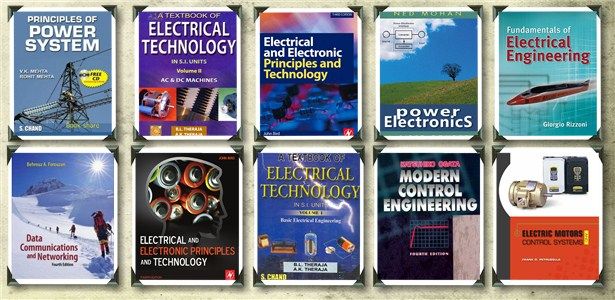Useful Electrical Equations:
· For Sinusoidal Current: Form Factor = RMS Value/Average Value = 1.11
· For Sinusoidal Current: Peak Factor = Max Value/RMS Value = 1.414
· Average Value of Sinusoidal Current (Iav) = 0.637 xIm Im .
· RMS Value of Sinusoidal Current (Irms) = 0.707 xIm Im .
· A.C Current = D.C Current/0.636.
· Phase Difference between Phase = 360/ No of Phase (1 Phase=230/1=360°, 2 Phase=360/2=180°)
· Short Circuit Level of Cable in KA (Isc) = (0.094 x CableDia
· Max. ( )
K = Material Factor, K for Cu = 159, K for Al = 105, K for steel = 58 ,
· Most Economical Voltage at given Distance = 5.5 x √ ((km/1.6) + (kw
· Cable Voltage Drop (%) =
(1.732 x current x (RcosǾ+jsinǾ) x 1.732 x Length (km) x 100) / (Volt(L-L) x Cable Run.
· Spacing of Conductor in Transmission Line (mm) = 500 + 18 x (P – P Volt) + (2 x (Span in Length)
· Protection radius of Lighting Arrestor = √h x (2D-h) + (2D+L).
Whereh= height
· Size of Lighting Arrestor = 1.5x Phase to Earth Voltage or 1.5 x (System Voltage/1.732).
· Maximum Voltage of the System = 1.1xRated
· Load Factor = Average Power/Peak Power
· If Load Factor is 1 or 100% = This is bestsituation
· If Load Factor is Low (0 or 25%) = you are payingmaximum amount
· Demand Factor = Maximum Demand / Total Connected Load (Demand Factor <1)
· Demand factor should be appliedfor
· Diversity Factor =
Sum of Maximum Power Demand / Maximum Demand (Demand Factor >1)
Diversity factorshould be consider for individual Load
· Plant Factor (Plant Capacity) = Average Load / Capacity of Plant
· Fusing Factor = Minimum Fusing Current / Current Rating (Fusing Factor>1).
· Voltage Variation (1 to 1.5%) = ((Average Voltage – Min Voltage) x 100) /Average Voltage
Ex: 462V, 463V, 455V, Voltage Variation= ((460 – 455) x 100) /455 = 1.1%.
· Current Variation (10%) = ((Average Current – Min Current) x 100) /Average Current
Ex: 30A,35A,30A, Current Variation = ((35-31.7) x 100) /31.7 = 10.4%
· Fault Level at TC Secondary
= TC (VA) x 100 / Transformer Secondary (V) x Impedance (%)
Motor Full Load Current =Kw /1.732 x KV x P.F x Efficiency
· For Sinusoidal Current: Form Factor = RMS Value/Average Value = 1.11
· For Sinusoidal Current: Peak Factor = Max Value/RMS Value = 1.414
· Average Value of Sinusoidal Current (Iav) = 0.637 x
· RMS Value of Sinusoidal Current (Irms) = 0.707 x
· A.C Current = D.C Current/0.636.
· Phase Difference between Phase = 360/ No of Phase (1 Phase=230/1=360°, 2 Phase=360/2=180°)
· Short Circuit Level of Cable in KA (Isc) = (0.094 x Cable
· Max
K = Material Factor, K for Cu = 159, K for Al = 105, K for steel = 58
· Most Economical Voltage at given Distance = 5.5 x √ ((km/1.6) + (
· Cable Voltage Drop (%) =
(1.732 x current x (RcosǾ+jsinǾ) x 1.732 x Length (km) x 100) / (Volt(L-L) x Cable Run.
· Spacing of Conductor in Transmission Line (mm) = 500 + 18 x (P – P Volt) + (2 x (Span in Length
· Protection radius of Lighting Arrestor = √h x (2D-h) + (2D+L).
Where
· Size of Lighting Arrestor = 1.5x Phase to Earth Voltage or 1.5 x (System Voltage/1.732).
· Maximum Voltage of the System = 1.1
· Load Factor = Average Power/Peak Power
· If Load Factor is 1 or 100% = This is best
· If Load Factor is Low (0 or 25%) = you are paying
· Demand Factor = Maximum Demand / Total Connected Load (Demand Factor <1)
· Demand factor should be applied
· Diversity Factor =
Sum of Maximum Power Demand / Maximum Demand (Demand Factor >1)
Diversity factor
· Plant Factor (Plant Capacity) = Average Load / Capacity of Plant
· Fusing Factor = Minimum Fusing Current / Current Rating (Fusing Factor>1).
· Voltage Variation (1 to 1.5%) = ((Average Voltage – Min Voltage) x 100
Ex: 462V, 463V, 455V, Voltage Variation= ((460 – 455) x 100
· Current Variation (10%) = ((Average Current – Min Current) x 100
Ex: 30A,35A,30A, Current Variation = ((35-31.7) x 100
· Fault Level at TC Secondary
= TC (VA) x 100 / Transformer Secondary (V) x Impedance (%)
Motor Full Load Current =




























